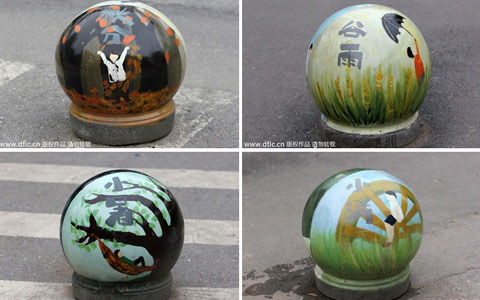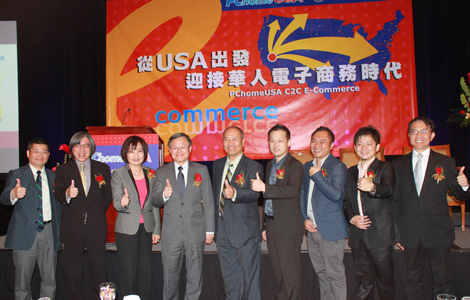The latest word on books: Keep those pages coming
Updated: 2014-04-23 07:22
By Sun Ye (China Daily)
|
||||||||
|
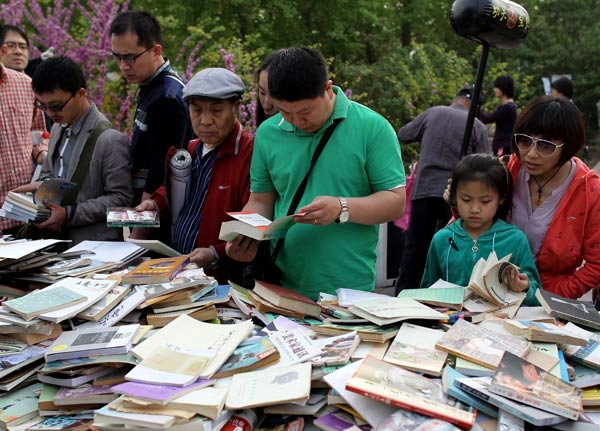 |
| Visitors get to grips with the material on off er at the Beijing Book Fair in the city’s Chaoyang Park. ZHU XINGXIN / CHINA DAILY |
|
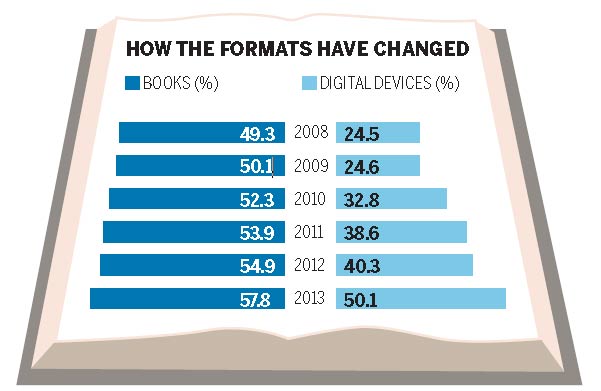 |
|
Source: Chinese Academy of Press and Publication FENG XIUXIA / CHINA DAILY |
WeChat's rapidly burgeoning user numbers - to date, it has attracted more than 300 million users, including more than 2 million public accounts that provide material for users - are more than sufficient to "give you what you want to read. That's why it's so successful. It's not about mass communication, it's all about the niche you're in," Xu said.
|
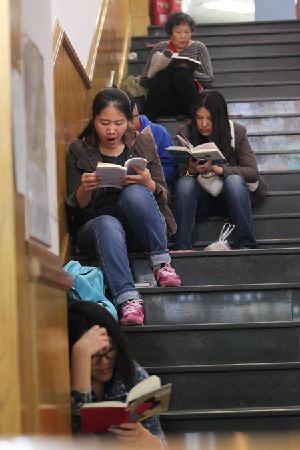 |
| Readers spend a night at Sanlian Bookstore in downtown Beijing, which recently extended its opening hours to become the first 24-hour bookstore in the city. ZOU HONG / CHINA DAILY |
"For me, good bookshops always express the owner's personal tastes and enthusiasms, as much in the decor as the choice of titles on sale and the type of people who are attracted to the premises," she added.
For those in search of ambience, Guo - who recently published A Guide to Chinese Independent Bookstores - recommended the Kubrick bookstore in Beijing, which specializes in works about the movie industry and regularly organizes screenings and talks by directors.
"You have to have your own style," said Zhang Hongye, general manager of Beepub, an art and culture publishing house in Songzhuang, a working artists' community in Beijing's eastern suburbs. "We deal with art and cultural themes, so we can't afford to be flippant or loud. We present books for those who are looking to assuage their craving for serious, in-depth material that's not available elsewhere."
The classics endure
|
Sound bites "I read, but mostly I do it online. At the store, I just walk around to see what everyone else is reading." Song Qiuzhu, 53, a traffic systems technician who lives next door to Sanlian Bookstore in Beijing's Dongcheng district, and favors books that expose corruption "Food is the most important thing to me. Reading is the second-most important." Zhao Lanfei, a 22-year-old junior student in college, who reads four to five books and numerous papers every month "Forty percent of my time is spent on e-readers, but bookstores are still worthy causes because they also provide other services. I hope to own a store that reflects my personality someday." Guo Yaqian, author of A Guide to Chinese Independent Bookstores "All together they (non-traditional platforms) only account for three of the 20-plus books I am currently reading. So I see myself as among the older generation." Xu Shengguo, 43, a researcher at the Chinese Academy of Press and Publication, who owns a Kindle, two Chinese branded e-book readers, an iPad and a phone loaded with reading apps. |
According to the CAPP survey, the Chinese public has never wavered in its appreciation of classic works such as A Dream of Red Mansions, Journey to the West, Romance of the Three Kingdoms and Outlaws of the Marsh, which are regularly voted the country's four favorite books.
But when it comes to annual bestsellers, contemporary works are taking pride of place.
Insight, the autobiography of Chai Jing, a well-known anchor on China Central Television, was China's most popular book, selling more than 1 million copies in the first month after publication, according to the 2013 Market Report of Retail Book Sales released by the literary consultancy Openbook.
"It (Insight) proves the industry's 80/20 rule," according to the report, referring to the old saw that 20 percent of the books published earn 80 percent of the industry's income.
"It looks back at the last 10 years, a period that is very popular with readers. It's a successful subject with enduring appeal," the report said.
Xu believes the book's success was driven by demographics: "Insight caught on most with white-collar workers. They're the ones who care about social change."
Childrens' literature, an ever-expanding genre, came next on last year's bestseller list, followed by politics, including Zhu Rongji on the Records and Deng Xiaoping and the Transformation of China.
"These books are aimed more at a group of mature readers with an interest in politics. Just as Tiny Times by Guo Jingming, a bestseller about a group of 20-somethings that has raked in a huge amount of money in the past few years, is indicative of the younger generation. You read what your group reads," Xu said.
Contact the writer at sunye@chinadaily.com.cn
Chen Jie contributed to this story.
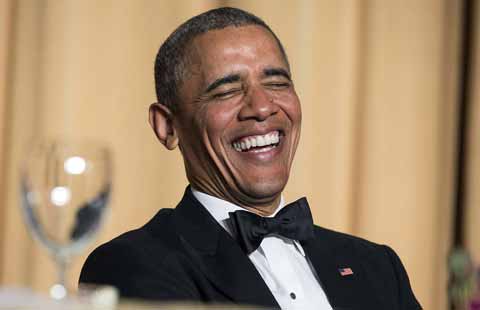
 Obama roasts himself, rivals at dinner
Obama roasts himself, rivals at dinner
 Forum trends: No house, no marriage?
Forum trends: No house, no marriage?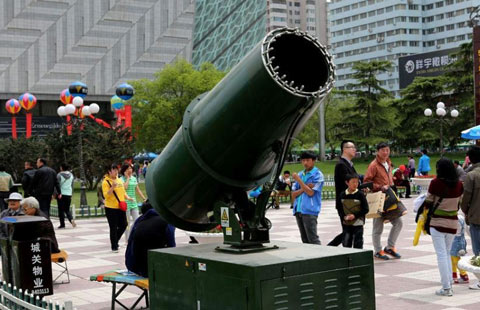
 Huge mist cannons attract people in Lanzhou
Huge mist cannons attract people in Lanzhou
 Indian train derailment kills at least 12
Indian train derailment kills at least 12
 One handed climber scales UK's toughest routes
One handed climber scales UK's toughest routes
 World leaders when they were younger
World leaders when they were younger
 H&M promotes summer collections with DJ show
H&M promotes summer collections with DJ show
 Getting a taste for the World Cup
Getting a taste for the World Cup
Most Viewed
Editor's Picks
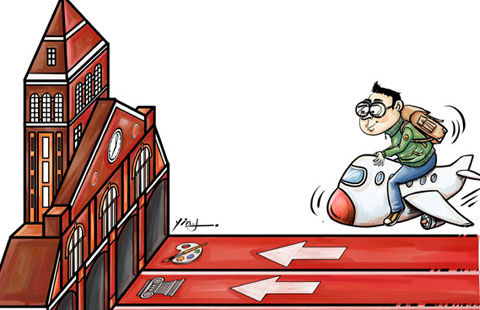
|

|

|

|

|

|
Today's Top News
Travel passes to DPRK made easier
Yunnan's only panda perking up thanks to TV
Intl cooperation to aid drug fight
Deal signed to upgrade roads, grid in Ethiopia
China busts foreign spy ring
Tokyo lawmakers begin China visit
Houston tries shuttlecock diplomacy
Senior Chongqing official investigated
US Weekly

|

|


